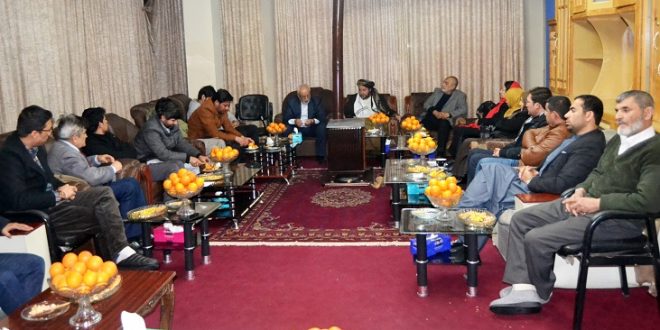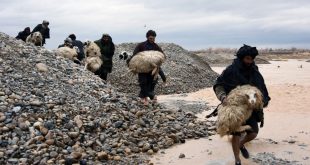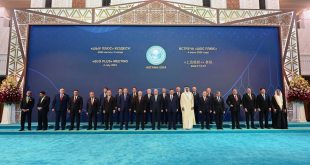AT News
KABUL: The Rana Think Tank during its monthly session comprehensively discussed the status quo of Afghanistan, and the 28th Afghan election—a democratic exercise that marred with widespread frauds and the initial results is not being accepted by many contenders, accusing the electoral bodies of taking side.
The key note speaker, Amir Muhammad Akhundzada said that Afghanistan has been once again in electoral deadlock due to systematic frauds, according to him, made by specific nominee. He also accused the Independent Election Commission (IEC) for favoring one contender, and pinned high hope over electoral complaints commission to seriously investigate the complaints.
Scrapping of 300,000 suspicious biometric votes is crucial to stop Afghanistan from crisis, he said, adding, these votes have been casted illegal. “Some votes casted before time, and some after, even some casted at 12:00 at night,” he said. But the fraudsters forgot that the electoral device take the time automatically, he added.
IEC has given legitimacy to these votes, brining out technical issues behind the failure. Many of votes have no result sheets even. “There many other votes that have been casted illegally even in Kabul,” he added.
Political pundits believe that there is highly possibility of runoff, and saying that conducting a fair election under President Ashraf Ghani’s leadership is not acceptable.
There is a need for interim-government to conduct fair, free and transparent election, Akhundzada said, adding, the new government should also work for the ongoing peace process.
Abdul Shokor Salangi, an international affairs analyst talked about ethnic issues in Afghanistan, saying all tribes across the country must have their representatives in the future government—something according to him, lacking at the moment.
In case of runoff, there is no guarantee of free and fair election as the same contenders, who have been accused of frauds, will be once again stand in presidential race, he said.
The participants believe that current problem in Afghanistan could be resolved in one night if there is will among the Afghan leaders. According to them, the Afghan leaders must open their eyes and see reality of the society, where people have become fed up from current certainty.
The Independent Electoral Complaints Commission says it would disprove the biometric-based votes if found problematic. The biometric technology was used in the September 28th presidential elections to count vote and all the runners for presidency had agreed to accept the biometric-based polls as valid.
Presidential candidate, Abdullah Abdullah has offered over 6,000 complaints for the initial results announced on Sunday. The initial result introduces incumbent president Ashraf Ghani at the top with 50.64 percent of votes.
Chief Executive Abdullah who had almost 39% is claiming he had garnered a significant majority of the vote but his rival Ghani had manipulated the polls and stuffed thousands of ballots including one third of his tallied vote.
 Afghanistan Times
Afghanistan Times




